Before the 2013-14 New York Rangers made their stunning run to the Stanley Cup Final, only to fall short, there was the 1978-79 team.
That Blueshirts squad authored an even bigger Cinderella story than their counterparts of 25 years later, emerging from third place in the four-team Patrick Division – with 91 points, they finished 25 behind the first-place New York Islanders – to advance to the franchise’s second Cup Final in eight seasons.
Despite shocking the Islanders – who would begin arguably the greatest championship run in NHL history the next season – in six games to reach the Final, those Rangers, like the 1971-72 club, weren’t able to finish the job, falling to the Montreal Canadiens in five.
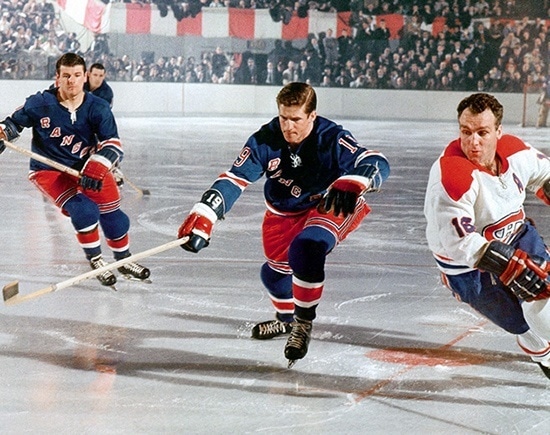
The 1978-79 Blueshirts were able to knock off the 116-point Isles, but didn’t have nearly enough to duplicate that feat in the next round, proving far inferior to the 115-point Habs. Still … with a handful of critically different personnel decisions, would the Rangers have had enough to vanquish mighty Montreal, which won its fourth straight Stanley Cup that season?
Considering what that team could have looked like, the answer seems to be a strong maybe. Though it will of course always be impossible to know for sure, it’s not difficult to see how easily a powerhouse alternate reality could have been in play for those Rangers.
Rangers Might Have Boasted More Powerful Lineup
THIS could have been the lineup the Blueshirts sent out against the Canadiens that spring:
| LW | C | RW |
| Pat Hickey | *Jean Ratelle | *Mike Bossy |
| Anders Hedberg | Ulf Nilsson | *Rick Middleton |
| Steve Vickers | Walt Tkaczuk | Don Murdoch |
| Don Maloney | Ron Duguay | Dean Talafous |
| LD | RD |
| *Brad Park | Mario Marois |
| Mike McEwen | Ron Greschner |
| Dave Maloney | Dave Farrish |
The significant what-might-have-been alterations to the Rangers’ lineup that season are denoted by the four asterisks. Yes, Mike Bossy, perhaps the greatest pure goalscorer in NHL history, could – and probably should – have been a New York Ranger. Rick Middleton absolutely should have been in a Rangers uniform that season, and Park’s departure from Broadway is now looked upon wistfully – and by many fans, as unnecessary, decades later.
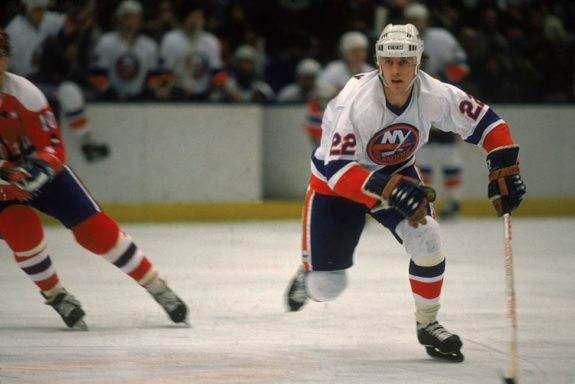
That’s two Hall of Famers and one five-time 40-goal scorer that would have been at coach Fred Shero’s disposal in his first season behind the Blueshirts’ bench. But this is all a pipe dream, the kind of fantastic what-if scenario that anyone could imagine for any team, right? Not really, actually. It’s important to consider how such a star-studded squad was just a couple of better decisions away from being real.
Bossy’s drafting serves even today as a cautionary tale for not just the Rangers, but all teams to not focus on possible flaws over obvious world-class talent. The NHL record holder with eight consecutive seasons of at least 50 goals incomprehensibly lasted until the 15th pick of the 1977 draft, so the Rangers weren’t the only team to misjudge his potential. Still, their missing on him is probably more painful than it was for anyone else.
Related: Best Undrafted Players in NHL History
Despite considering Bossy, the Blueshirts passed on him with two picks, No. 8 and 13. Then-general manager John Ferguson Sr., in thinking that will go down in infamy, felt Bossy wasn’t physical enough to succeed in the NHL. The Rangers selected Lucien DeBlois eighth and Duguay 13th.
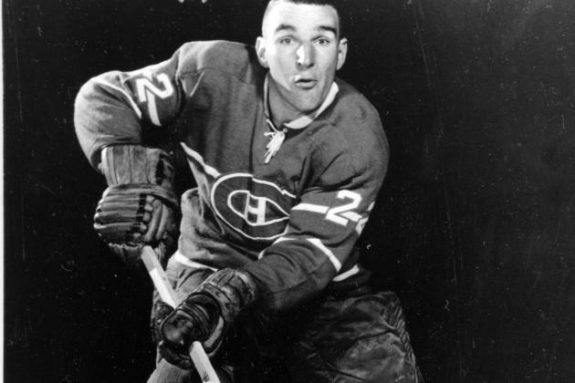
In 1978-79, the Rangers got 28 points from DeBlois and 27 goals and 36 assists from Duguay. Bossy scored a career-best 69 goals and added 57 assists for the arch-rival Islanders.
Disastrous Middleton Trade Preceded Bossy Miss
While the failure to take Bossy represents the franchise’s biggest draft mistake, the 1976 departure of Middleton, the Rangers’ first-round pick (14th overall) in 1973, is likely the worst trade in team history. The price for the Boston Bruins to obtain the speedy two-way forward who would total 402 goals and 898 points in 881 games for them was fading winger Ken Hodge, who went on to record 23 goals and 45 assists in 96 games in a Blueshirt. The disastrous Middleton swap was also made by Ferguson.
You may also like:
- 3 Keys to the Rangers Winning Games 3 & 4 in Washington
- 3 Most Underrated Rookies From the 2023-24 NHL Season
- Rangers Hold Off Capitals to Take Game 2
- Projected Lineups for the Capitals vs Rangers – Game 2
- 3 Rangers Who Need to up Their Game as the Playoffs Go Along
It was Ferguson’s predecessor, Emile Francis, who did away with franchise greats Ratelle and Park, though that trade with the Bruins didn’t fall under the lopsided category. The Rangers received Phil Esposito and Carol Vadnais in the 1975 deal, and Espo led the Rangers with 42 goals and tied for the team lead with 78 points in 1978-79, while recording a team high-tying 20 points in the playoffs.
However, while still very productive during his time on Broadway, Esposito was no longer the unstoppable force he had been five seasons earlier and played just two-plus more seasons with the Rangers after 1978-79 before retiring. Vadnais was a solid defenseman in New York – but he wasn’t Park, who fashioned several more dominant two-way seasons on the Bruins’ blue line en route to Hall of Fame enshrinement.
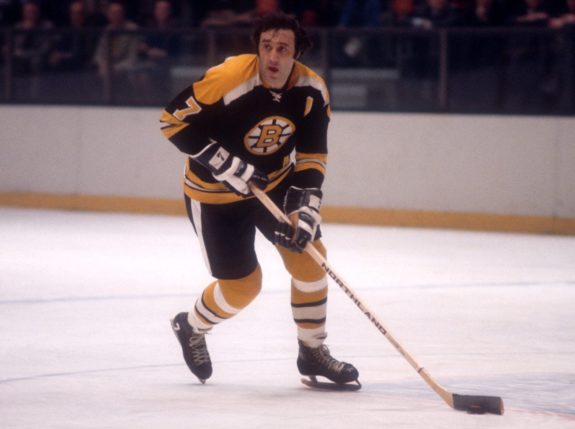
Even worse, Ratelle was hardly finished, recording five seasons of at least 70 points in Boston (72 in 1978-79), outscoring Esposito 450-404 after the trade. So even if Ratelle-for-Esposito were to be considered a wash, the Rangers ended up with a decent defender in Vadnais rather than the all-time one they already had in Park.
Related: The Richards & The Sedins – Comparing Sibling Greatness
It’s worth noting that Park played in only 40 games in 1978-79, yet recorded 39 points and a plus-28 rating. Vadnais produced 45 points in 77 games and was a plus-14 that season, and he did prove instrumental during the playoff run, leading all players with a plus-17 rating and recording 11 points in 18 games.
While Ferguson’s Rangers tenure is marked by some horrible decisions, he also added key talent that helped lead the team to the verge of a championship yet again. Luring forwards Anders Hedberg and Ulf Nilsson – whose Rangers legacy remains alive and well at every home game – from the World Hockey Association’s Winnipeg Jets before the 1978-79 season represented his biggest successes, with the duo recording 78 and 66 points that season, respectively.
So had Ferguson taken three different paths amidst his personnel procurement? Well, the top forward unit in 1978-79 could have been Ratelle, with his 72 points, centering Bossy and his 69 goals, and Hickey, with a career-best 75 points, on their left.
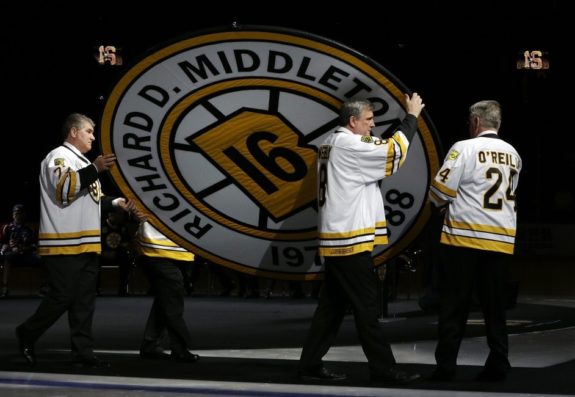
It might have meant Hedberg and Nilsson teaming with Middleton (86 points in 1978-79) to form a second line as dominant as most first lines in the league. It might have meant a third forward unit comprised of longtime linemates Vickers (47 points) and Tkaczuk (42), playoff-tested and still effective, perhaps teaming with Don Murdoch, who had 37 points in just 40 games even as the substance abuse that would torpedo his promising career took hold, on the right.
Such depth of talent could have given the Rangers a dangerous fourth line, had those been used extensively at the time. It could have been centered by Duguay, a fine player and future 40-goal scorer who proved worthy of his draft position – had the Rangers taken Bossy five spots earlier, of course. Promising rookie Don Maloney (26 points in 28 games) and Dean Talafous (29 points) could have joined him on a youthful unit, and enforcer Nick Fotiu, who played 71 games and accrued 190 penalty minutes that season, would have gotten plenty of time when needed.
Still-Dominant Park to Lead Defense?
The defense would have been all the more formidable if not for the 1975 mega-trade with Boston. With Park theoretically still in the fold to lead a unit that included McEwen (58 points), Greschner (53) and Marois (31), the Rangers would have received even more offense from the backline to supplement the powerful group up front. Park, Greschner, Marois and Dave Maloney brought physicality as well.
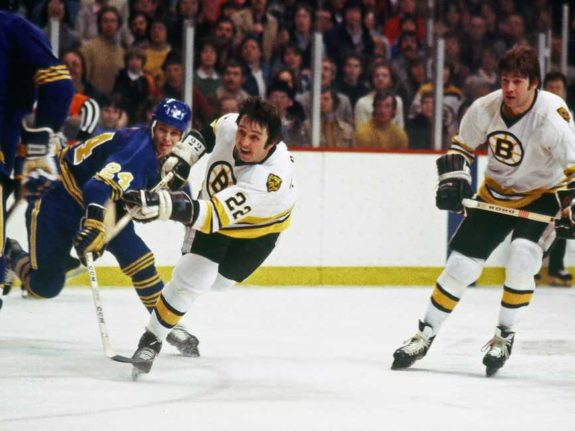
So would this loaded fantasyland lineup have been enough to overcome the Canadiens that boasted Guy Lafleur, Steve Shutt, Larry Robinson and Ken Dryden among their nine future Hall of Famers? It’s of course important to point out that it was the actual 1978-79 Rangers that advanced to the cusp of a championship – not the theoretical team explored here. Still, had these what-if Rangers matched up with Montreal, one would think they certainly would have had a very good chance – and likely a better one than the underdog group that so unexpectedly reached the Stanley Cup Final.
